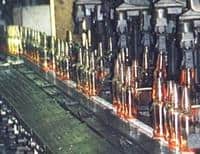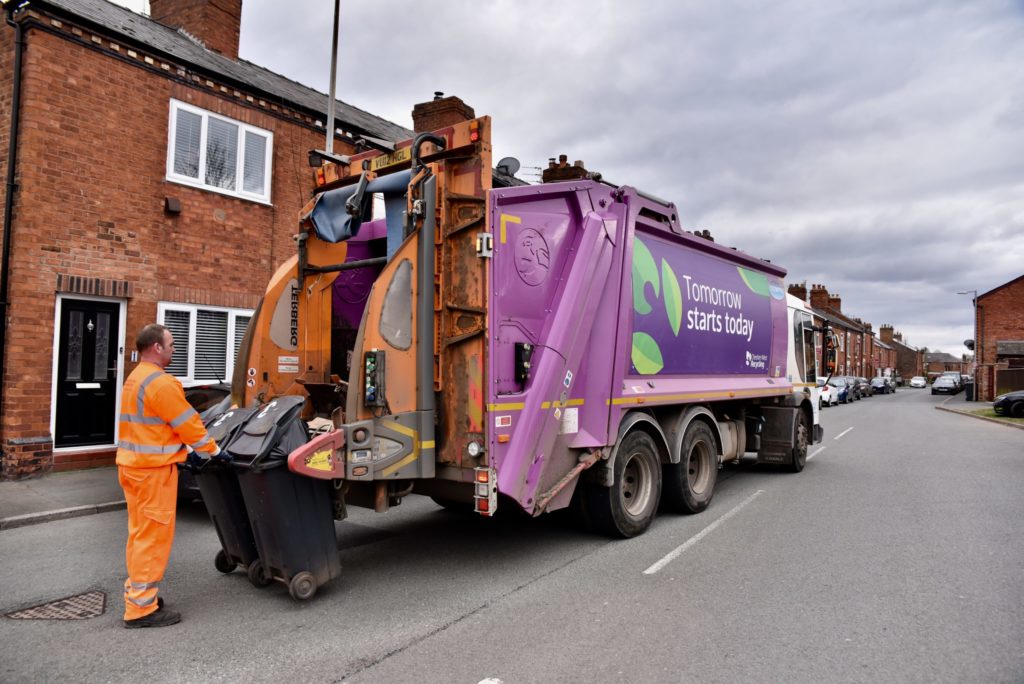Unfortunately, it's not as simple as that.
Government advisors have estimated increases of 20 to 27% in electricity costs and 18 to 35% on costs for gas fuel.
In reality, in negotiating new contracts for electricity, glass manufacturers are finding that their friendly electricity providers are demanding 30 to 40% more money for the power that they use. In an industry that spends £125 million each year on energy, that's a significant increase.
“Some people say this increase in energy costs is about the (current) high oil price,” says Andy Hartley, director of strategy and communications at the trade confederation British Glass. “But it's not, if anything the oil price only masks it. This is being set by environmental legislation.”
“The impact on the business is much greater cost, so it puts pressure on the business not to pay out more for its raw materials,” he explains, stressing that British Glass itself has no role in setting prices for recycled glass.
Responsibilities
The sector isn't just “whining” at its environmental responsibilities, however, the British Glass communications director says. “We don't think industry should be free to pollute, we have the highest standards. We are not concerned about that as long as it is shared amongst sectors and across all countries within the EU.”
Emissions from the transport sector have been growing steadily for over 25 years, he points out, and yet he says that sector – including the high-polluting air transport sector – has had little in the way of emissions controls. The domestic sector has also had precious little to worry about in terms of meeting its climate responsibilities.
For the glass sector, it's not just about emissions trading – although the sector is smarting after being allocated fewer “carbon credits” than it needs after having voluntarily reduced its carbon dioxide emissions by half in the last 25 years. There's also renewables obligations, integrated pollution prevention and control measures, packaging waste producer responsibility and the climate change levy – something the sector sees as duplicating the emissions trading scheme in virtually all but name.
Mr Hartley says that the government worked on these measures individually – assessing the impact of each one separately. “If you look at each one, it looks as though the industry could absorb the costs quite easily. Three million here (each year), a million there. But add them together, and it's a serious hit.”
British Glass says that the sector is estimating costs of these measures as high as £61 million – the loss of over 50% of the sector's profits.
Gloomy
It's a gloomy outlook for the future – perhaps surprisingly gloomy, considering the generally accepted forecast for the sector of steadily increasing production. And the gloom has only just started. While the government's decision to hit the sector for six on emissions might add incentive to use more recycled glass, in a European and global context the loss of profits could have serious implications on the long-term scene in this country.
Governments in other European Member States have been kinder to their domestic glass sectors, the British Glass director says. While Defra is looking at setting the UK glass sector's allocations below what it needs, in Germany the government is setting emissions allocations at the level the German glass sector needs, with Spain setting its glass sector more emissions allocations than it needs – no doubt in the hope that its sector achieves some kind of growth.
Other sectors in the UK, such as steel, have cut their emissions substantially through the clever use of plant closures and mass lay-offs. The glass sector has managed a 30% reduction in carbon dioxide emissions since 1991, not by reducing production, but by simply improving energy efficiency.
“We've actually broken a trend,” Mr Hartley says. “We have created more glass – two billion more units each year – and still cut the amount of carbon dioxide being emitted.”
Sustainable
Such was the sector's record, it was chosen by Defra to pilot its sustainable consumption and production programme, Changing Patterns. “At a European level, we found ourselves being asked about sustainable development – what our industry saw as normal practice was actually a prestigious example.”
To an impartial observer, it seems like almost a betrayal for the government to turn round and tell a sector with such a record it was not doing well enough.
“The government decided to pitch our carbon dioxide National Allocation Plan lower than what is needed by industry,” he says.
As a result, and because the sector believes it is now nearing its “theoretical minimum” level of carbon emissions, it will have to buy emissions. On current estimates, this could mean millions in additional expenditure, on top of the price rises demanded by the energy companies because of the very same emissions trading scheme.
British Glass believes costs could be, at best, about £1.7 million a year – and at worst, could see costs in the tens of millions. The trouble with the system is that no one yet knows how much emissions will sell for. On an open market, they could go for 10 euros a tonne, they could go for 40 euros a tonne.
Switching investments abroad
As the situation for glass manufacturers becomes more difficult in the UK, multi-national companies that run the major glass plants in the UK will be reviewing long term investment strategies here and across the EU. A large proportion of the big glass recyclers in the UK are owned by multinationals – Rexam Glass in Barnsley, for example, is part of the global Rexam packaging corporation.
Mr Hartley says: “It's not going to be an overnight shut down, but it could ultimately see jobs going abroad. If we want to make it so expensive here compared to Eastern European countries, we could see investment switch to those countries – there are already plants operating in Poland for example that are just as modern, clean and efficient.
“There are a number of glass sectors that will not invest here – not the container sector, yet, but we have seen it in sectors like crystal glass.”
With 11,200 jobs in the glass manufacturing industry – and a further 20,000 jobs in supply industries – this seems like a lot of employment opportunities going astray. And those with a long-term interest in increasing the amount of glass recycling that happens in this country had better hope those investment decisions don't drift towards other countries.
Under the Packaging and Packaging Waste Directive, the supply chain for glass packaging has to achieve a recycling rate of 60% by 2008 – and that requirement isn't going to loosen after 2008. Currently, the rate is heading just north of 34%, but even with the one million tonnes of reprocessing capacity which the manufacturers say they have if the collections could keep up, there will need to be some reprocessing investment to reach future targets.
Ray of hope
The one small ray of hope on the horizon is that the government has not yet set the definitive National Allocation Plan for the glass sector. This is expected to be set in December, and in the mean time British Glass has been lobbying Defra, which has suggested that there could be “flexibility” in the system.
“We have had some reassurances from government that there is still some flexibility within the NAP. Ideally, emissions trading should be neutral for an industry that has been continually reducing its carbon dioxide emissions.”
British Glass says recycled glass will be important in “clawing back” some of the its emissions, but as for the future, the trade confederation questions whether recent growth in recycled content can be sustained.













Subscribe for free